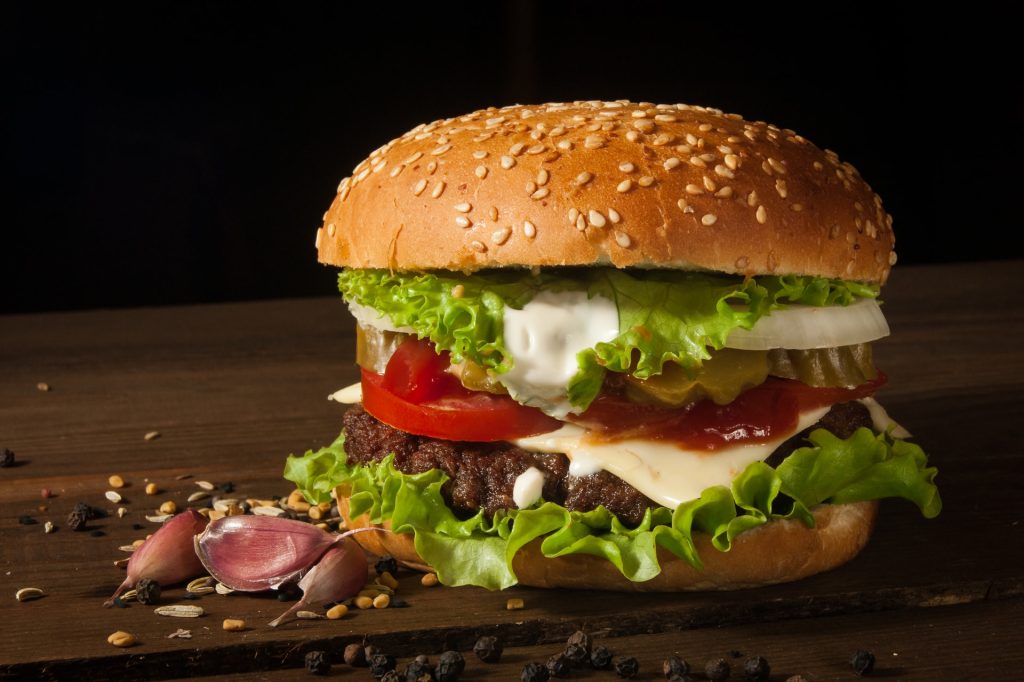
A new study has shown that, instead of overeating, humans moderate the size of energy-rich meals they consume, suggesting people are smarter eaters than previously thought.
The findings, published in The American Journal of Clinical Nutrition, revisit the long-held belief that humans don’t notice the energy content of the foods they consume, making them prone to eating the same quantity of food by weight, regardless of it being energy-rich or energy-poor.
The study, led by the University of Bristol, challenges a common view among researchers that people tend to overconsume high-energy foods.
Previous studies manipulated the energy content of foods or meals to create low- and high-energy versions. In those studies, people were not informed of which version they ate, and findings showed they tended to eat meals of the same weight, resulting in greater calorie intake with the high-energy version.
“For years we’ve believed that humans mindlessly overeat energy-rich meals. Remarkably, this study indicates a degree of nutritional intelligence whereby humans manage to adjust the amount they consume of high-energy density options,” said lead author Annika Flynn, Doctoral Researcher in Nutrition and Behaviour at the University of Bristol.
Rather than artificially manipulating the calories in single foods, this study looked at data from a trial using a normal, everyday meals with different energy densities, such as a chicken salad sandwich with fig roll biscuits or porridge with blueberries and almonds. The trial involved 20 healthy adults who temporarily lived in a hospital ward where they were served a variety of meals for four weeks.
The international team of researchers calculated the calories, grams, and energy density (calories per gram) for every meal each participant consumed. They found that meal calorie intake increased with energy density in energy-poor meals as previous observations with artificially manipulated foods also found. Surprisingly, with greater energy density a turning point was observed whereby people start to respond to increases in calories by reducing the size of the meals they consume. This suggests a previously unrecognised sensitivity to the energy content of the meals people were eating.
As this finding was based on data from a small, highly-controlled trial, the researchers next investigated whether the general population followed this pattern eating freely. Using data from the UK National Diet and Nutrition Survey, researchers again found meal calorie intake increased with energy density in meals which were energy-poor and then decreased in energy-rich meals. Importantly, for this turning point pattern to occur, participants would have needed to consume smaller meals, by weight, of the more energy-rich meals.
Annika said: “For instance, people ate smaller portions of a creamy cheese pasta dish, which is an energy-rich meal, than a salad with lots of different vegetables which is relatively energy-poor.”
This research sheds new light on human eating behaviour, specifically an apparent subtle sensitivity to calories in energy-rich meals.
Co-author Jeff Brunstrom, Professor of Experimental Psychology, said: “This research gives added weight to the idea humans aren’t passive overeaters after all, but show the discerning ability to moderate how much of an energy-rich meal they consume.
“This work is particularly exciting as it reveals a hidden complexity to how humans interact with modern energy-rich foods, something we’ve been referring to as ‘nutritional intelligence’. What this tells us is we don’t seem to passively overconsume these foods and so the reason why they are associated with obesity is more nuanced than previously thought. For now, at least this offers a new perspective on a longstanding issue and it opens the door to a range of important new questions and avenues for future research.”
Source: University of Bristol

